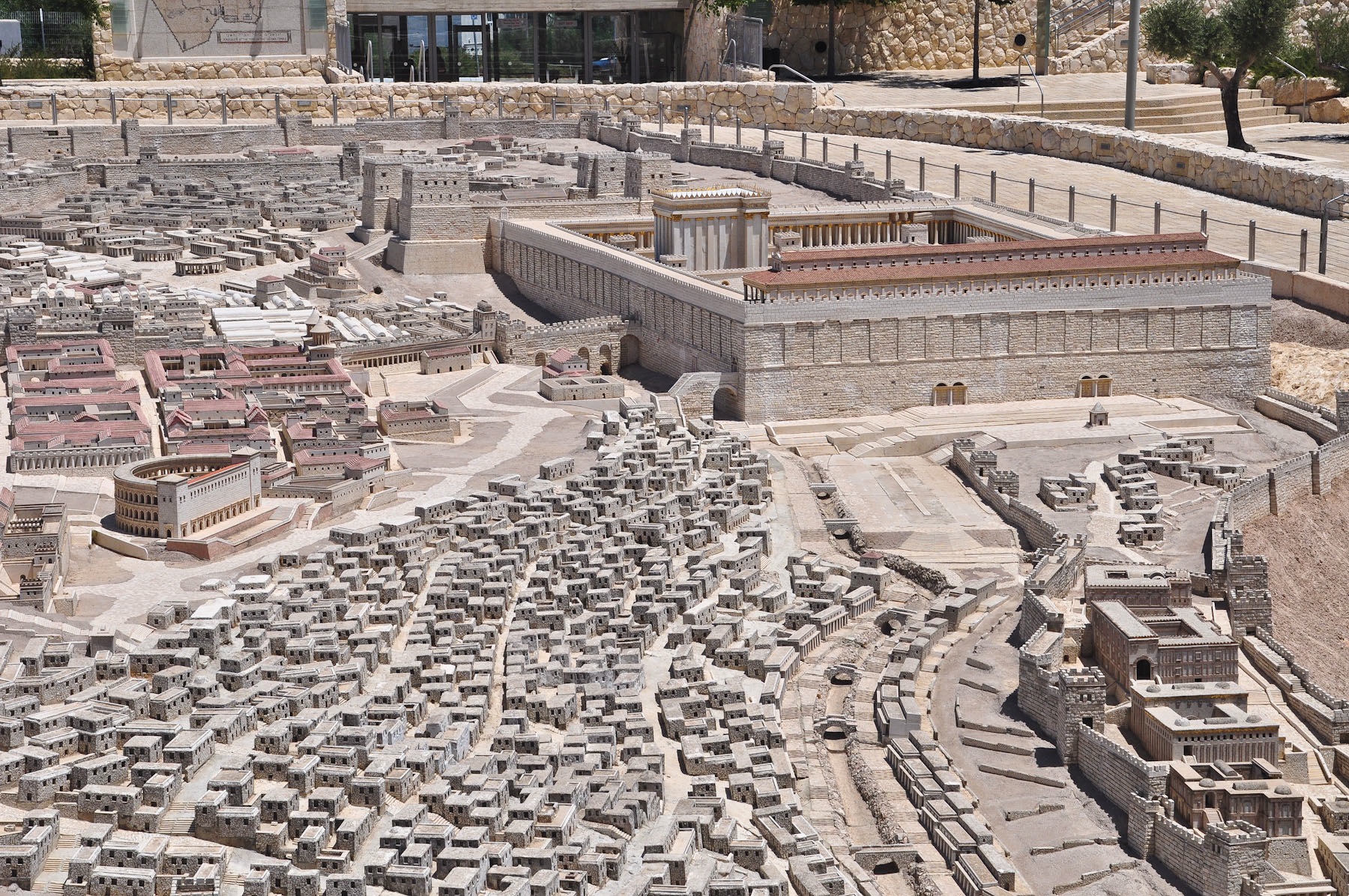Dave Watchman
Active Member
Such a comparison is relatively meaningless. To compare the importance of one event in prophecy from another there is no need to say one event is more important than the other and that no other event could be referred to that is less important than the other!
How could you compare the importance of prophecy concerning Jesus coming into his Kingdom and Jesus dying on the cross, for example? How could you compare the prophecy of Jesus' atonement for our sins with prophecy that Babylon would destroy Jerusalem?
But the prophecy of the destruction of the "city and the sanctuary" in Dan 9.26 was very important, nevertheless, in Israel's history. It was the end of Jewish religion in the time that Messiah was cut off. That was very important both to the Jews and to the new universal Christian religion.
I wouldn't have even gone there.
It's not the importance that I am drawing attention too, heaven forbid, it's the difference between the two comings of Messiah. One takes place in a small part of the world, the other impacts the entire globe.
The middle third of Luke 21 is a local prophecy during the first coming of Messiah concerning "this people":
"There will be great distress in the land and wrath against this people. They will fall by the sword and will be taken as prisoners to all the nations. Jerusalem will be trampled on by the Gentiles until the times of the Gentiles are fulfilled.
Matthew 24 is an apocalyptic prophecy that concerns everyone living in the whole world, every human being.
"For then there will be great tribulation, such as has not been from the beginning of the world until now, no, and never will be. And if those days had not been cut short, no human being would be saved.
It is pretty clear to me and to the historic commentators that much of the Olivet Discourse focuses on the fall of Jerusalem, even though some of it indeed refers to later in history and the Return of Christ. I would check your assumptions before drawing the conclusion that this cannot refer to the fall of Jerusalem in 70 AD. To be honest, I don't see how any scholar could see it differently?
Can't you see how this is a violation of Jesus' own Word?
"At that time Jesus said, “I praise you, Father, Lord of heaven and earth, because you have hidden these things from the wise and learned, and revealed them to little children.
If you want to align yourself with "the historic commentators", the wise and learned, the early church fathers, and the popular "scholarly" view, that's fine.
If I thought it imperative for you to understand this, I'd write until I was blue in the face.
Read this:
And this:
Luke 21 was INSIDE the temple, Mathew 24 begins with Jesus LEAVING the temple and walking away at the end of that day.
Gifts Dedicated to God

I didn't mention this in the above two posts, but when you are looking a a temple stone, it can either be viewed from the outside looking at the outer surface, or the inside looking at the inner surface.
Simple right?
Luke 21:
"Some of his disciples were remarking about how the temple was adorned with beautiful stones and with gifts dedicated to God.
Where in the temple would we expect to find the "gifts dedicated to God"?
Outside the temple wall, or inside the temple wall?
Like in 2 Chronicles 3 where Solomon:
"He overlaid the inside with pure gold. He paneled the main hall with juniper and covered it with fine gold and decorated it with palm tree and chain designs. He adorned the temple with precious stones. And the gold he used was gold of Parvaim. He overlaid the ceiling beams, doorframes, walls and doors of the temple with gold, and he carved cherubim on the walls.
And like Asa in 1 Kings 15, the sacred gifts are found inside, into the house of the Lord:
"Nevertheless, the heart of Asa was wholly true to the Lord all his days. And he brought into the house of the Lord the sacred gifts of his father and his own sacred gifts, silver, and gold, and vessels.
When Jesus was "leaving the temple" and walking away at the start of Mathew 24, they could not see the adornment of beautiful stones and with gifts dedicated to God. When they were leaving, they were looking at the outer structure.
I know you don't want to hear it, But Luke 21 is not the Olivet Discourse. I had the advantage of finding the empirical first, and then reverse engineering the rest. Still, it shouldn't be too hard for one to nuance the meaning out of the Script.
Luke 21 was inside the temple, the morning and the day OF the Olivet Discourse, which would happen late in the day, in the evening in front of only 4 people.
"For at night He lodged on the Mount called Olivet.
Matthew 24 is not about the destruction of Jerusalem, it pertains to our modern era, and to the end of the world when every wall will fall.
"The fish of the sea and the birds of the heavens and the beasts of the field and all creeping things that creep on the ground, and all the people who are on the face of the earth, shall quake at my presence. And the mountains shall be thrown down, and the cliffs shall fall, and every wall shall tumble to the ground.
There shall not be left here (on planet earth), one stone upon another that shall not be cast down to the ground.
Peaceful Sabbath.

